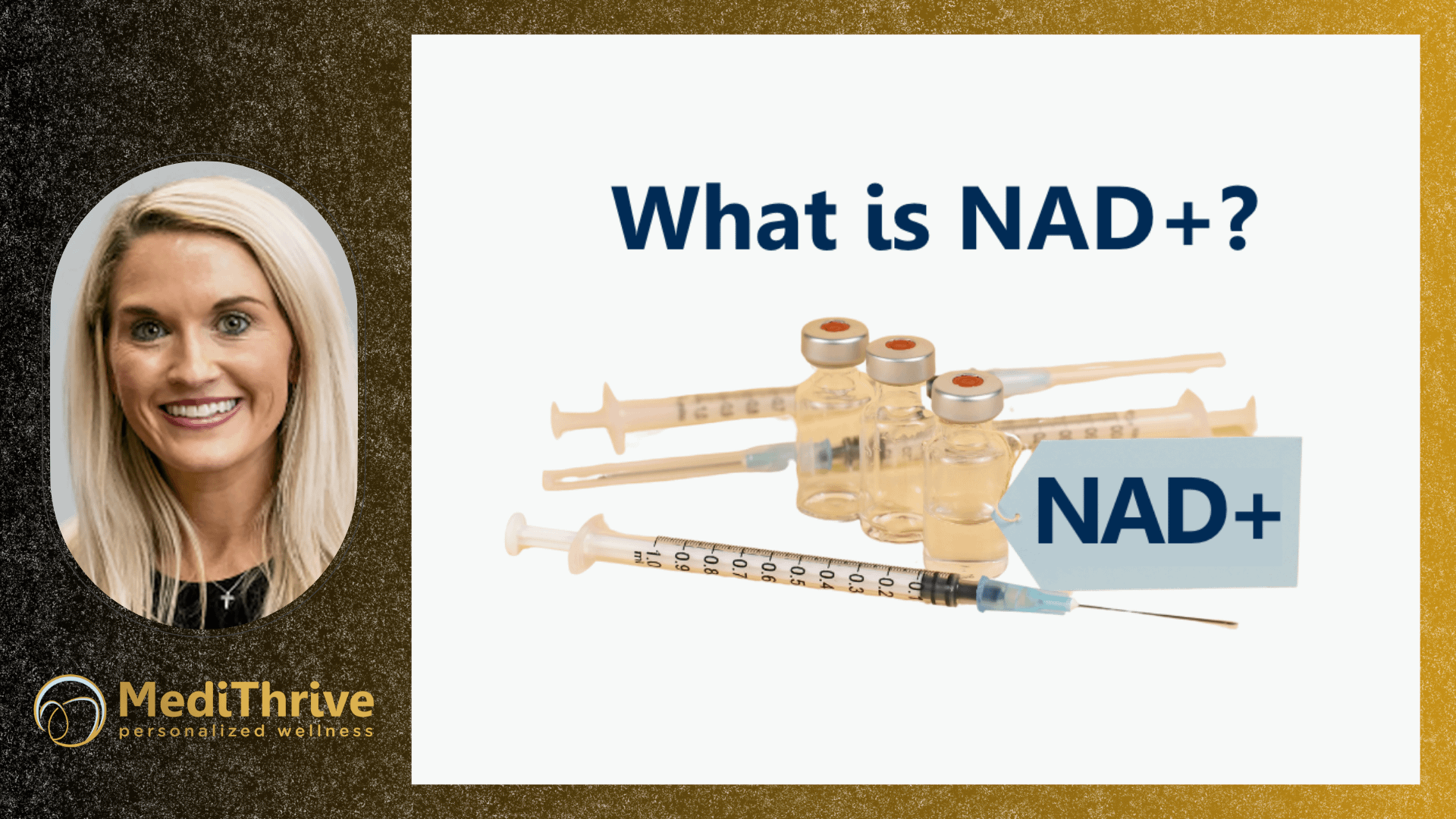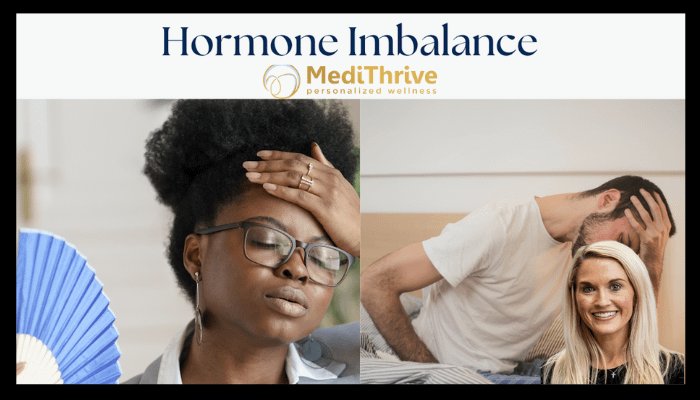Community News Day with Lake Norman Citizen
- News Friday & Lake Norman Citizen

Testosterone is often linked to masculinity, but it’s essential for both men and women. In men, it supports muscle mass, energy, libido, and bone health. In women, it influences mood, bone density, sexual function, and muscle maintenance. Low testosterone, or “Low T,” can affect both genders, causing a range of symptoms and health issues.
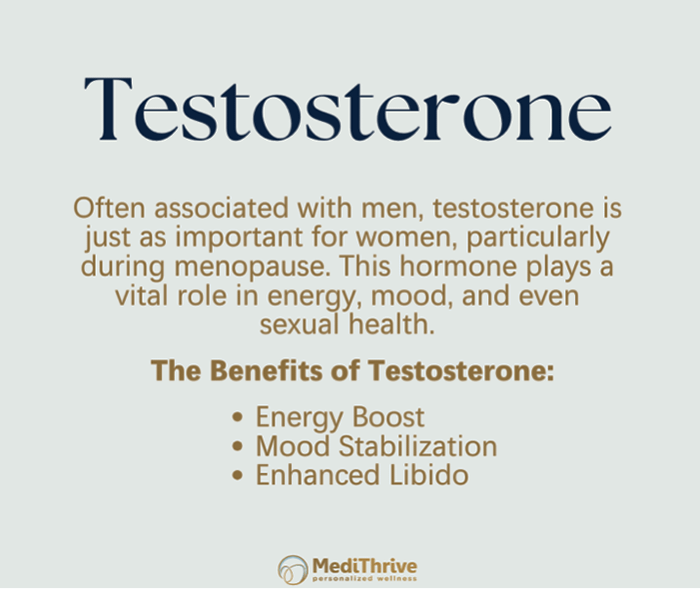
Symptoms of Low Testosterone In Women
In women, low testosterone can lead to a noticeable decrease in sexual desire and overall energy. It may also cause muscle weakness, making it harder to maintain strength, along with mood swings and increased emotional instability. Additionally, low testosterone in women can contribute to reduced bone density, increasing the risk of osteoporosis, as well as cognitive decline, affecting memory and mental clarity.
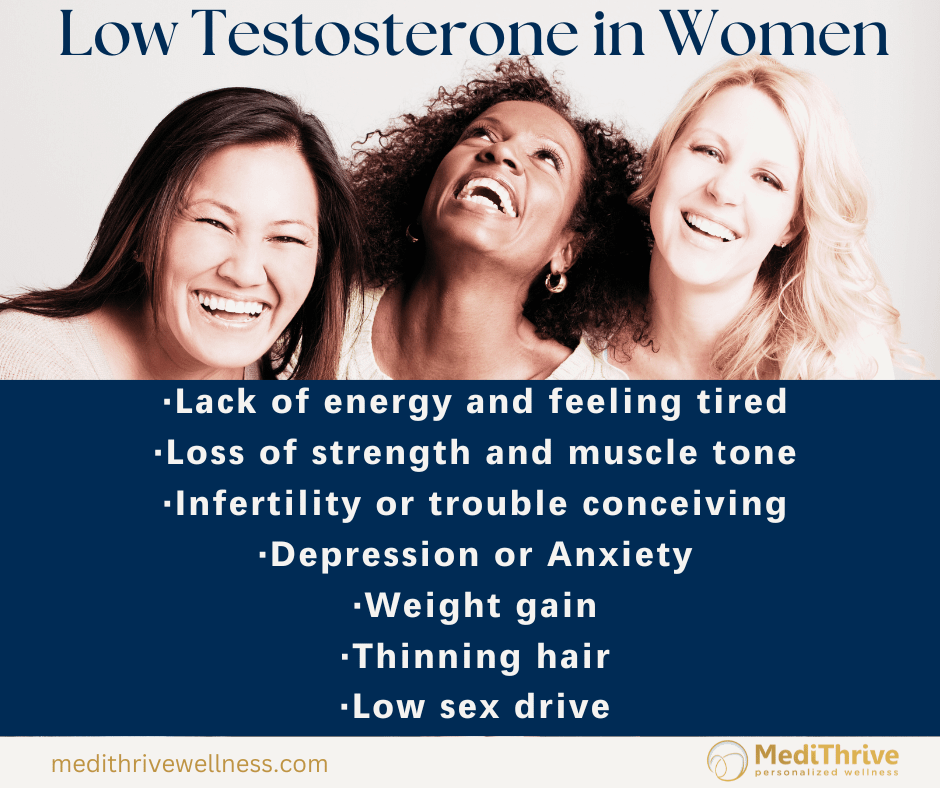
Symptoms of Low Testosterone In Men
In men, low testosterone can cause persistent fatigue and low energy, making it difficult to complete daily tasks. It often leads to a decreased libido and erectile dysfunction, affecting sexual health and performance. Additionally, men may experience a loss of muscle mass and strength, resulting in increased body fat and reduced physical performance.
Mood changes, including irritability, depression, and mental fog, are also common. Furthermore, low testosterone in men can contribute to reduced bone density, increasing the risk of fractures and long-term skeletal issues.
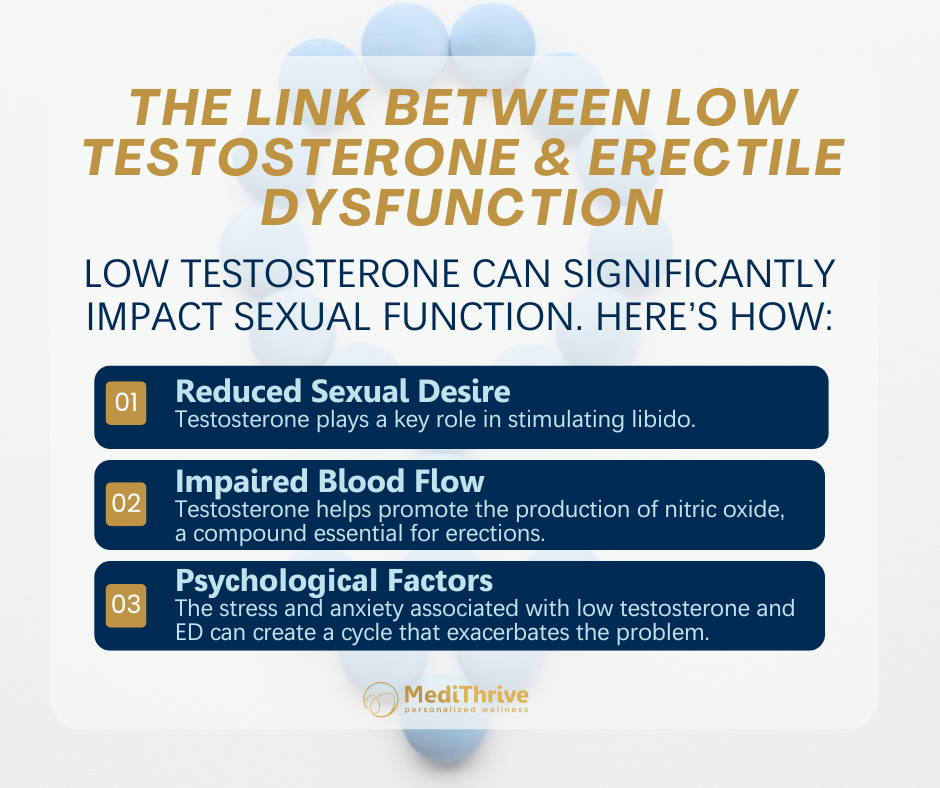
Causes of Low Testosterone
Testosterone levels naturally decline with age, particularly during life stages like menopause and andropause. Obesity and chronic stress can further suppress testosterone production, as excess body fat and high cortisol levels negatively impact hormone balance.
Sleep disorders and chronic illnesses, such as diabetes and hypertension, also contribute to lower testosterone levels by disrupting the body’s natural hormone regulation. Additionally, certain medications, including steroids and opioids, as well as exposure to environmental toxins like BPA, can interfere with testosterone production and overall hormonal health.
Natural Ways to Boost Testosterone
Regular exercise, particularly strength training and high-intensity interval training (HIIT), is an effective way to boost testosterone production. A well-balanced diet rich in healthy fats, zinc, vitamin D, and protein also plays a crucial role in maintaining optimal hormone levels. Furthermore, managing stress through relaxation techniques like meditation and ensuring quality sleep helps regulate cortisol levels, supporting overall hormonal balance and testosterone production.

Hormone Replacement Therapy (HRT)
For those with significantly low testosterone, Hormone Replacement Therapy (HRT) can be an effective treatment for both men and women, offering benefits such as improved mood, increased libido, better energy levels, and enhanced muscle mass and bone strength. At MediThrive Personalized Wellness, we offer multiple options for testosterone administration, including pellets, injections, creams, troches, and patches.
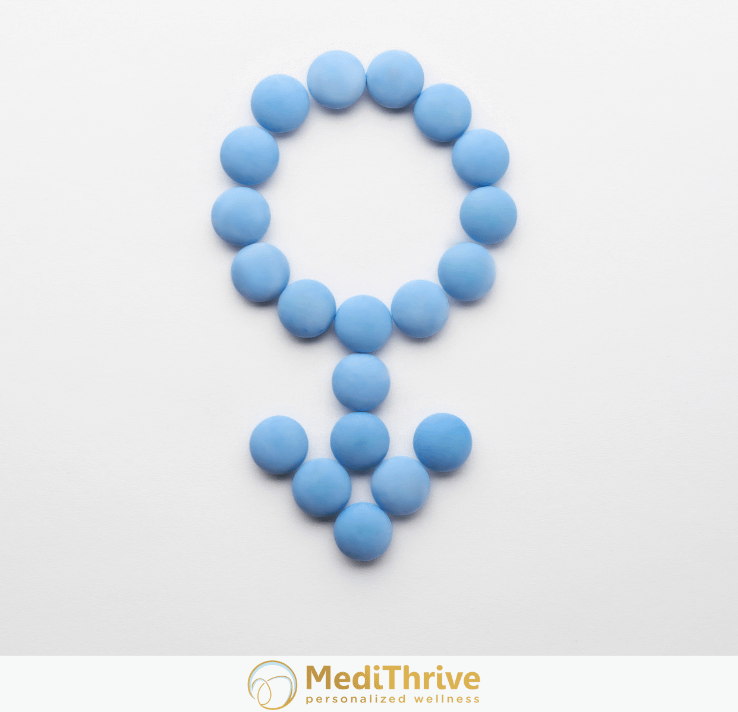
Take Charge of Your Health
Low testosterone can impact quality of life, but lifestyle changes and Hormone Replacement Therapy (HRT)can help. If you suspect hormone imbalances, our team at MediThrive Personalized Wellness can guide you. Visit us at 19109 W. Catawba Avenue Suite 120 in Cornelius, NC, or call (980) 580-6070 for a consultation. It’s your time to thrive!

Leah Griffin O’Connor – Wellness Care Strategist
Leah has deep family roots in the Lake Norman area, fostering a strong connection and commitment to her community. With a longtime interest and passion for functional nutrition and lifestyle, she holds a profound belief in the power of functional medicine.
Outside of work, she enjoys being with her family and friends, spending time on the lake, and traveling. Leah is dedicated to enhancing the patient experience and creating awareness for MediThrive’s solutions to help others unlock their wellness potential. Leah looks forward to watching MediThrive help others feel their best and thrive
